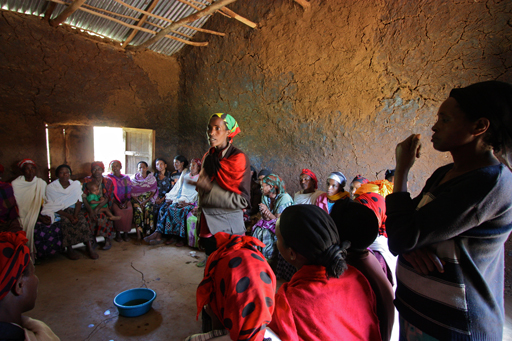2.3.1 Water Sector Strategy
The Ethiopian Water Sector Strategy developed in 2001 has been described as a road map to achieve the objectives stated in the Water Resources Management Policy (WRMP) (Tafesse, 2008). The guiding principles of the Water Sector Strategy (WSS) remain the same as those of the WRMP. These principles are:
- Water is a natural endowment commonly owned by all the people of Ethiopia.
- As far as conditions permit, every Ethiopian citizen shall have access to sufficient water of acceptable quality to satisfy basic human needs.
- In order to significantly contribute to development, water will be recognised both as an economic and social good.
- Water resources development shall be underpinned by rural-centred, decentralised management, a participatory approach, and an integrated framework.
- Management of water resources shall ensure social equity, economic efficiency, systems’ reliability and sustainability norms.
- Promotion of the participation and community management of all stakeholders and user communities, particularly women’s participation in the relevant aspects of water resources management (MoWR, 2001).
The WSS is divided into separate strategies for four sub-sectors: general water resources, hydropower, water supply and sanitation, and irrigation. The section on general water resources uses similar section headings to the WRMP but expands on each of them to give more information on how they should be implemented. To select one example, the policy on gender issues in the WRMP is covered by one sentence: ‘Promote the full involvement of women in the planning, implementation, decision making and training as well as empower them to play a leading role in self-reliance initiatives’ (MoWR, 1999). In the Water Sector Strategy, this is extended to several paragraphs about ‘gender mainstreaming’. Gender mainstreaming means considering women’s needs and perspectives equally with men’s at all times and ensuring that both are at the centre (in the mainstream) of decision making. In particular, this means involving women in all stages from earliest identification of an issue and planning through to project completion and evaluation. In the WSS, the section specifies that gender mainstreaming should be part of all aspects of water resources planning, development and management. It gives details of how this could be done, e.g. by allocating a specific number of places for women on community-based groups; by educating women in water-environment-health issues; by training women in technical aspects of operation and maintenance, and by conducting research to better understand the reasons why women may feel constrained from playing leading roles in the management of local water systems (Figure 2.4).

2.3 Water Sector Strategy and Programme
